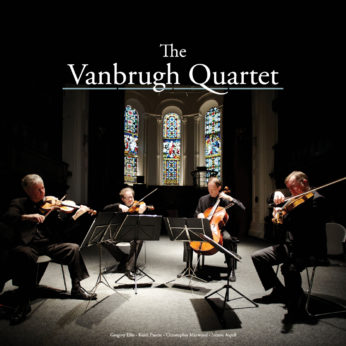Composer: Ludwig van Beethoven (b. 1770 - d. 1827)
Performance date: 07/07/2016
Venue: Bantry Library
Composition Year: 1810
Duration: 00:21:08
Recording Engineer: Richard McCullough, RTÉ lyric fm
Instrumentation: vn, vc, pf
Instrumentation Category:String Quartet
Artists:
Vanbrugh Quartet (Gregory Ellis, Keith Pascoe [violins] Simon Aspell [viola] Christopher Marwood [cello]) -
[quartet]

This all-Beethoven concert features three
major but very different chamber works written over three years and almost
coincidentally having three consecutive opus numbers. The Op.95 Quartet is
renowned for its extreme compression and the explosive concentration of its
ideas. The Op.96 Violin Sonata, the last in a distinguished series cherished by
all violinists, revels in its spacious lyricism. The Op.97 Trio, best-known as
the Archduke after its dedicatee, is
written in Beethoven’s Olympian mode and is his final piano trio.
The F minor Quartet was written in 1810 and
it was to be his last quartet for nearly fifteen years. Here he is the direct
successor of Haydn’s economy of expression and the immediate forbear of Bartók
and Berg. The first subject is like an image of Beethoven, abrupt, intense,
sudden in his tenderness and equally quick to take offence. The second subject
group is every bit as dramatic in its contrasts, a melting wisp of a theme over
a tremolo accompaniment that suddenly bursts into a driving rhythmic idea that
is a precursor of the Grosse Fuge.
The material is so compact that an exposition repeat is out of the question and
we are thrown straight into the 24 bar development. The recapitulation holds no
more surprises except to wonder again at its extraordinary brevity.
The slow movement in D major is in simple Lied form of ABABA. The austere beauty
of the cello’s opening scale is softened by the caressing melody that circles
around it, though the subtle minor key inflections do disturb this serenity.
The second idea is a fugue set off by the viola, a gentle forerunner of the
great fugues of the last quartets. The Scherzo bursts in without a break,
reverting to the intense compression and the minor key of the first movement
that had been slightly relaxed in the Allegretto.
It has a persistent dotted rhythm and a stark energy that is mellowed by the
two brief Trios.
The Rondo Finale is introduced with a few
tender Larghetto bars before
launching the ambivalent Rondo refrain. The construction is regular with three
refrains and three dramatic interludes, which appear to conclude the work
before the sudden flowering of F major in a whirlwind presto coda, like a sudden glass of Champagne.
Copyright © 2025 West Cork Music. All rights reserved.
Designed and developed by Matrix Internet